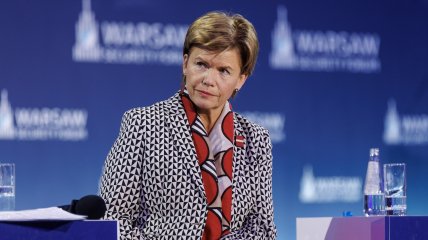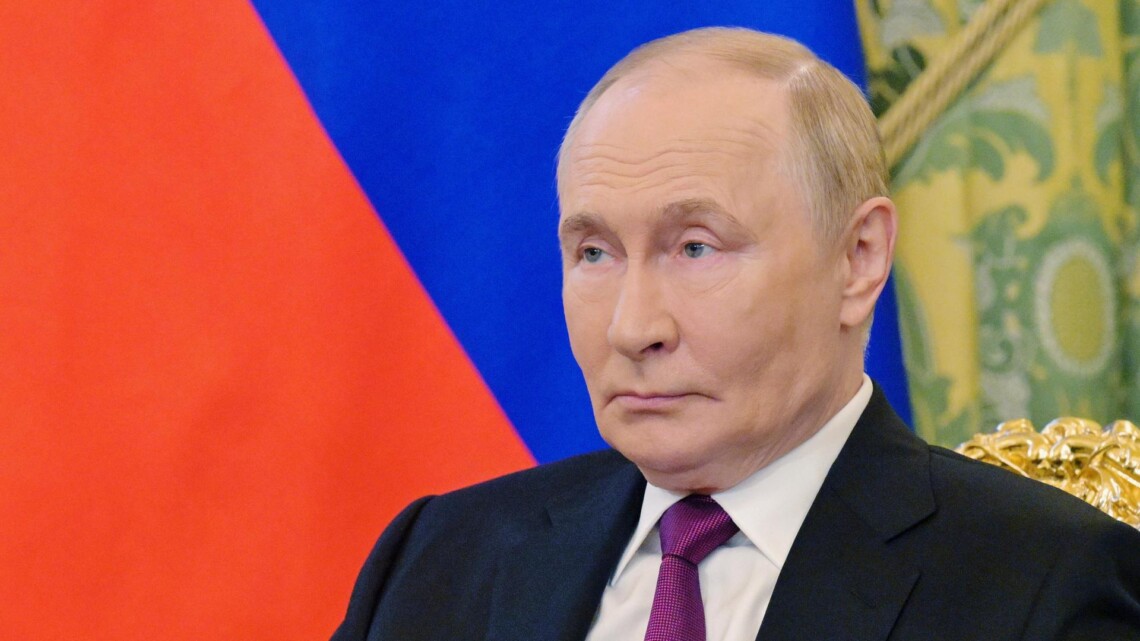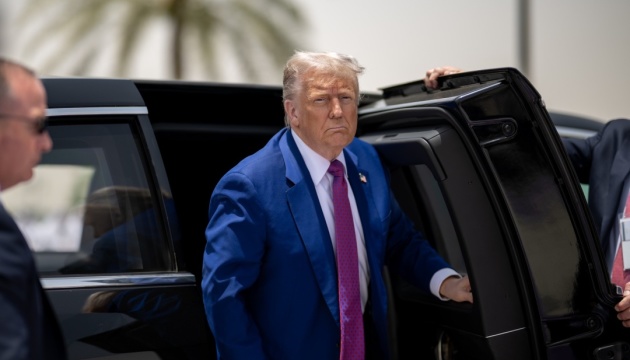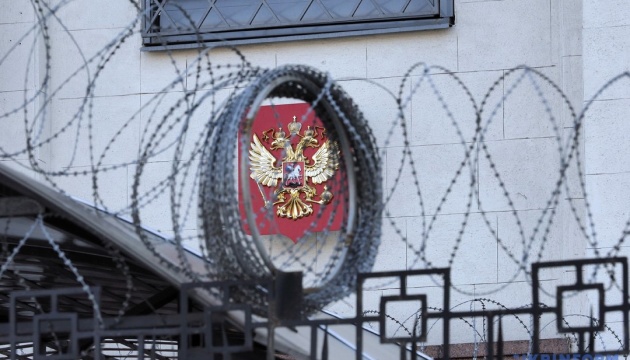вологість:
тиск:
вітер:
On the roadmap to peace and Putin’s tactic in Ukraine and Europe: Interview with Latvia’s Foreign Minister
The Minister explained what could bring a ceasefire in Ukraine closer.
Latvia consistently stands with Ukraine, supporting its right to a just peace, sovereignty, and a European future. Against the backdrop of renewed diplomatic efforts to achieve a peace agreement between Kyiv and Moscow, Telegraf conducted an exclusive interview with Latvia’s Minister of Foreign Affairs, Baiba Braže.
Read below about the key paths to long-lasting peace in Ukraine, the main security guarantees for the future, and the tactics Russia is using against Europe now.
Is the ceasefire in Ukraine any closer?
— My first question is about the potential summit between President Trump and Putin in Budapest, should it take place. Minister, do you believe it could in any way bring Ukraine closer to peace?
— I don't want to speculate about this.
I think it's very clear that we all want peace — Ukrainians, Latvians, Europeans, and of course, President Trump has invested a lot of effort in bringing us closer to peace. We appreciate these efforts. But what needs to be done to achieve it?
First, we need to provide Ukraine with all the self-defense capabilities it needs, including support for its military industry – the best in Europe – as well as for the long-range strike capability to hit legitimate military targets on Russian territory — drone factories, airports and any other facilities that enable attacks against Ukrainians. Above all, Ukraine is and will remain a strong, independent, democratic and sovereign state with sufficient military capacity and an advanced domestic production capacity.
Second, we must continue to weaken and pressure Russia. We have successfully passed the 19th sanctions package – which will target Russia’s financial and energy sectors and take restrictive measures against its enablers. We will also restrict the movements of Russian diplomats on EU territory, and thus limit Russia’s options to conduct malign operations in Europe. But we need to keep raising the pressure, Russia can only be forced into peace. This is why we are already preparing proposals for the 20th sanctions package.
The United States has also imposed strong additional measures against Russia’s systemic oil companies, and these are all steps in the right direction. For instance, India is taking action to limit its purchases of Russian oil. All of these measures will reduce income in the Russian budget, which means less money for the war machine and less resources to pay soldiers and sustain the war.
Third, we need to sustain practical investment in the strength of NATO and the EU: defence investment, production of military supplies and capability development, and efficient procedures for resupply and reinforcement. We also need to learn from Ukraine on a daily basis — identify, integrate, and rapidly adopt technology and lessons from the battlefield.
This is the road to peace, and it requires strong, tireless, political engagement and concrete support measures.
Every effort counts when it comes to achieving a lasting and just peace.
However, currently, the situation is that there's not a single indicator that Russia wants peace. Russia is and will remain the biggest threat, not only to Ukraine and its neighbors, but to the whole Euro-Atlantic alliance.
You need a powerful military, but also strong democracy and institutions. And the challenge is that Ukraine must own that peace.
— Absolutely, Ukrainian terms of peace.
— Yes, but also it has to be grounded in agreement of the Ukrainian government. Others can mediate and support, but it's impossible to do something over somebody's head. Nothing about Ukraine without Ukraine.
Back in the early 1990s, when the Baltic states were negotiating the withdrawal of Russian troops from our territory, we worked really hard, but it was impossible to resolve this issue bilaterally between just Riga and Moscow. We had friends helping us — the Americans, the Swedes, and others — and together we reached a deal that led to the Russians leaving the country. That was one of the happiest days I can remember.
So everything is possible. But there are some difficult measures and negotiations ahead.
*Following the collapse of the Soviet Union, Russian troops remained stationed in Latvia, posing a challenge to the country’s restored independence. Through intensive diplomatic efforts, Latvia — with support from the international partners — negotiated the complete withdrawal of Russian forces. By August 31, 1994, the last Russian troops had left, marking a decisive step in consolidating Latvia’s sovereignty and security.
Ukraine’s EU accession talks will be unblocked
— Are we now any closer to at least a ceasefire than, let’s say, nine months ago, when President Trump just took office?
— I think so.
Putin hasn't been able to take Donbas for almost four years. In the past year, Russia has lost another 300 000 casualties, and managed to conquer less than 1% of Ukrainian territory. We clearly see this bloody equation. We have no illusions, the situation is not going to be easy over the winter, but with the support of friends, Ukraine will be able to withstand it.
— One of the ideas to strengthen Ukraine is a reparations loan — the proposal which was put forward by the European Commission. What is Latvia's position on this and where discussions are heading now in that regard?
— From the very beginning, when the Russian state assets were frozen, our position has been clear: given Russia’s brutal and illegal actions, there is a strong and legitimate legal case for using those assets to support Ukraine — whether for defence, reparations, or reconstruction, depending on Kyiv’s needs.
Very clearly, that is a possibility. Of course, the financial risk lies with the Europeans, so a proper legal mechanism must be in place to address it. But we believe that such a solution can and must be reached. The aggressor must pay for the atrocities and destruction it has caused.
— There are also ongoing discussions about security guarantees for Ukraine, including its future membership in the European Union. However, we are witnessing a political deadlock in unblocking the accession talks. Is there any way forward at this stage?
— The whole of the EU, but also the U.S., support Ukraine's membership and the start of negotiations. There is only one country that doesn’t, but I'm confident the process will be unlocked.
I look forward to the day when Ukraine and Moldova will start negotiations to enter the EU. Latvia will support your accession process and offer reform assistance from our own experience, every step of the way.
At the same time, I think Ukraine is Europe’s biggest and strongest security guarantee, together with its friends, and that should remain so. Latvia also supports Ukraine's membership in NATO.
Russia’s tactic is to target people high up in the hierarchy
— Minister, you’ve mentioned the importance of strengthening European defence. Do you believe the new European Defence Roadmap is sufficient, given the security threats that Latvia and other Baltic states are facing now?
— Well, there isn’t a single measure that can address everything.
Russia’s warfare doctrine combines both non-military and military measures. Depending on the political objectives Russia seeks to achieve, it adjusts its measures. Non-military ones are often the cheapest and the most available, so they use them more often — cyberattacks, corruption, cover espionage, sabotage activities. These tactics are well studied and widely known. In Ukraine’s case, Russia first tried non-military means.
Remember Yanukovych, who attempted to block the EU Association Agreement and ultimately did not sign it. Russia was sending money to certain forces for such an outcome. Then there was a people's uprising, and the regime has fallen.
What followed was the illegal annexation of Crimea.
When the butcher in the Kremlin realized that he cannot stop Ukraine from moving towards the EU, the military attack started.
Indeed, Russia had for many years attempted to interfere in Ukraine, to undermine its European integration. So now, as a last resort, Putin is trying to achieve the same political objectives, but through military means. And he is clearly failing. In year four of the full-scale invasion, Russia has failed to meet any of its strategic objectives. So now, Putin is trying to use the cover of peace negotiations to issue those same unrealistic demands – giving up Donbas, regime change in Ukraine, and so on.
Unfortunately, we see Russian interference succeeding in some countries. I cannot name them, but anyone analyzing political events globally can see it. And it is not limited to Europe — similar patterns can be seen elsewhere as well.
In this regard, we must learn from Moldova. The recent success Moldova had in conducting a free and fair election, despite immense duress and Russian hostile interference, is remarkable. Moldova has clearly committed to the pro-European path, and we must offer all the support it needs.
The work on isolating and deterring Russia is not just a challenge for the nations on the Eastern Flank. We must counter Russian influence globally, and in international organizations. For instance, Russia has not been elected to the International Court of Justice, or the International Civil Aviation Organization. Political isolation matters, as it demonstrates where the international community stands.
And the international community does not stand with Russia.
 Джерело: telegraf.com.ua (Світ)
Джерело: telegraf.com.ua (Світ)
Новини рубріки

Путін прокоментував скасування зустрічі з Трампом та нові санкції США
24 жовтня 2025 р. 00:01

Білий дім назвав дату зустрічі Дональда Трампа та Сі Цзіньпіня
23 жовтня 2025 р. 23:53

У Трампа очікують, що нові санкції створять великий тиск на економіку Росії
23 жовтня 2025 р. 22:57




